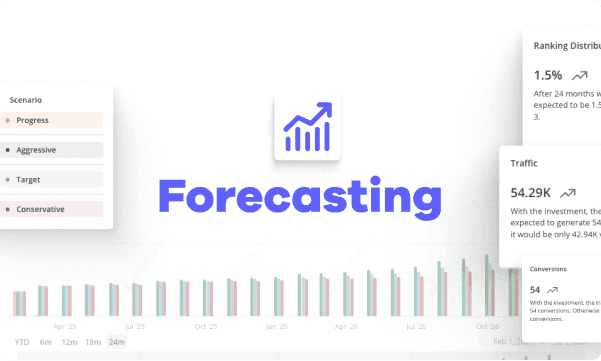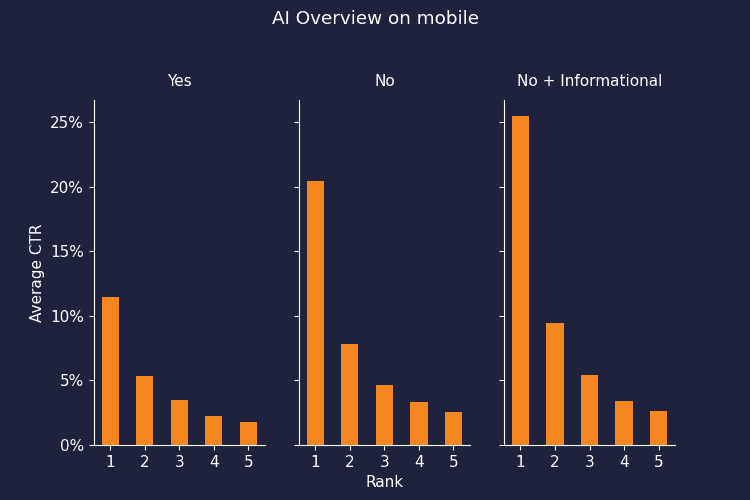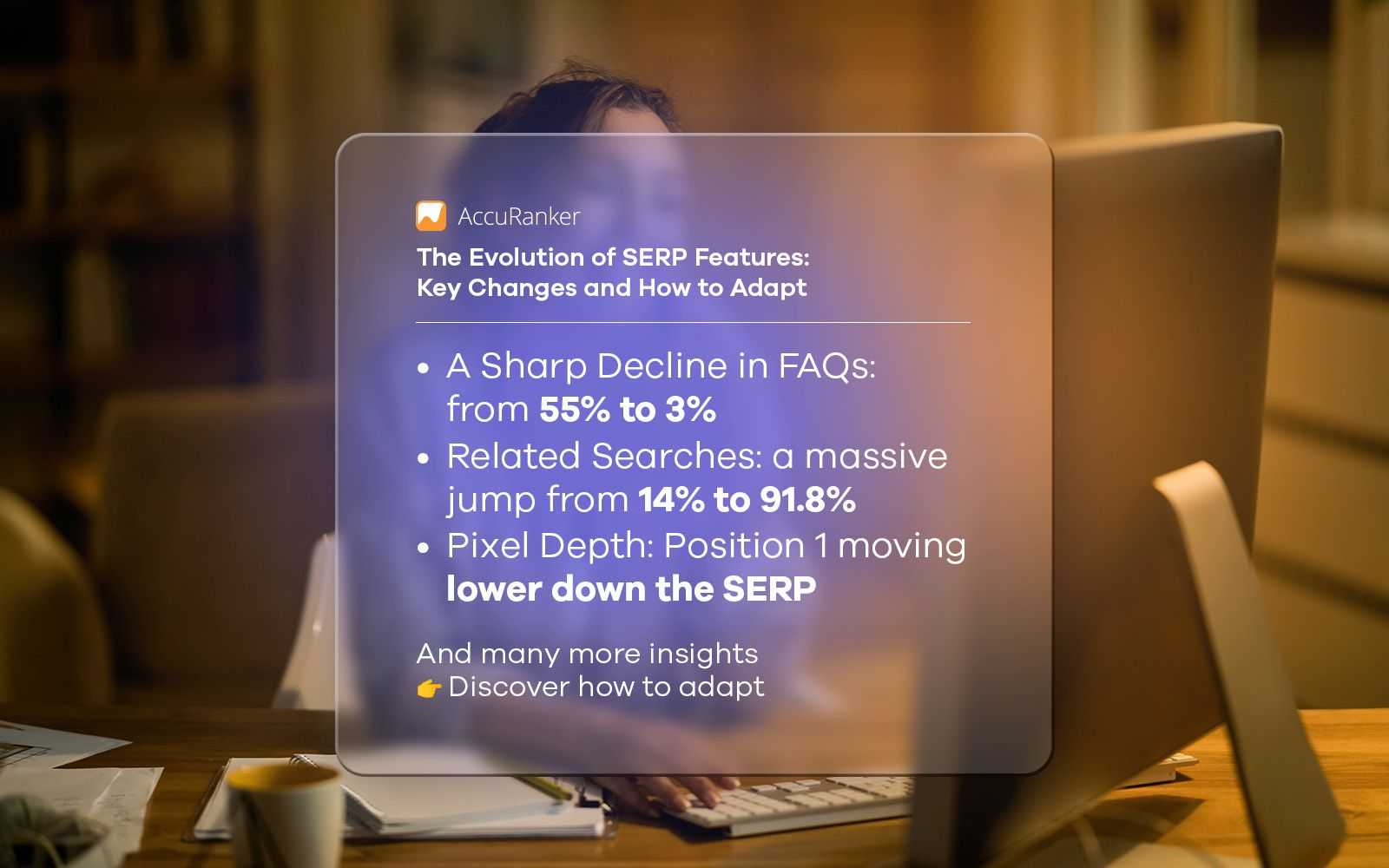How to Use Sustainable SEO Strategies to Boost Your Brand
Last updated on Wednesday, December 27, 2023

One of the critical aspects of online marketing is ethical SEO. According to 75% of digital marketers, SEO is an effective strategy for achieving marketing goals.
Hence, over the years, the struggle for high search engine ranking has become very intense, especially with Google's ever-changing algorithms.
Due to this intensity, most people choose the inappropriate route to get higher rankings. Unfortunately, Google recognized these antics and flagged down their websites.
Here is the thing: Google is huge on website owners following the approved SEO methods to rank. This is called ethical SEO.
Ethical SEO is a more ethical and acceptable approach to SEO. It involves implementing techniques that adhere to the guidelines set by search engines like Google.
So, how do you ensure that you use sustainable SEO strategies that are acceptable to search engines?
In this article, I will show how to practice ethical SEO using compelling, sustainable SEO strategies. Let’s get going!
What is Ethical SEO?
Ethical SEO, known as "White Hat" SEO, is a practice that prioritizes authenticity, relevance, and long-term sustainability techniques to boost online visibility.
It uses legitimate strategies to improve website visibility and rankings.
This is where your digital marketing strategy is without deceit or trickery. It is done with honesty.
You can achieve that by creating high-quality content with your users in mind and not just to meet the standard requirements of SEO.
Unlike Black Hat SEO, which relies on unethical methods, ethical SEO follows search engine guidelines and focuses on providing value to users.
By implementing ethical strategies, you can improve your website's ranking and attract traffic without the risk of punishment from search engines.
Ethical SEO vs Black Hat SEO

SEO is very beneficial, but seeing results takes a long time. For example, because over 97% of all search traffic happens on the first page of the SERPs, many businesses strive to attain that top position.
However, most inexperienced digital marketers become impatient and prefer to “outsmart” search engines by using manipulative methods to “speed up” the ranking.
This unethical approach is known as black hat SEO.
Black hat SEO uses deceptive methods like keyword stuffing (loading keywords into a web page's meta tags, visible content, or backlink anchor text) to gain visibility.
Other techniques include creating duplicate content, spamming links to websites, cloaking, falsely reporting a competitor, and using sneaky redirect links.
Although black hat SEO can work for only a short time, it can also cost you greatly when your audience realizes they've been tricked.
Below is a clear difference between the two:

| Ethical SEO (White Hat SEO) | Black Hat SEO |
|---|---|
| Seeks organic backlinks to the site | Pays a website for backlinks |
| Attracts social media followers by creating quality content | Pays for social media followers who aren’t the ideal customers |
| Authentic including of SEO keywords in the copy as naturally as possible | Spams SEO keywords inauthentically in copy just to appease search engines |
| Commenting on 3rd party website blogs when there is something honest, on-brand to say | Commenting without substance on 3rd party website blogs, just for the free backlink |
Importance of Ethical SEO for Your Brand
Adhering to SEO's ethical norms is important for establishing a long-term online presence and safeguarding your brand's reputation.
Here are some of the main reasons why ethical SEO should be a top concern for you and your company:
#1. High Levels of Transparency, Trust, and Credibility
Using an ethical approach in your business’s marketing strategy is a very efficient way to enhance your webpage’s rank in search engines.
Transparency helps build trust and credibility. It proves to search engines that your website is authentic and free of manipulative techniques to rank high.
#2. Long-term Success
Ethical SEO involves using sustainable strategies that help your website rank for a long time.
Search engines like Google don’t hesitate to flag down websites and businesses that are not following ethical standards.
For such websites, they can only rank for a very short time before they are kicked to the 50th page in the SERPs. And statistics show that over 75% of web searchers never scroll past the first page.
Imagine being at the 50th page. It’s like you are suddenly thrown into a ghost town.
However good SEO involves time, effort, and money, but the results last long.
#3. Provide a Better User Experience
Ethical SEO focuses on quality rather than quantity, affecting users' experience.
For example, to rank among the top results for a query, you need to continuously deliver high-quality and relevant content that is helpful to users.
Helpful content improves user experience.
There is a reason why Google put certain rules in place: to limit all bad SEO practices that will interfere with user's experience and their accessibility to information.
Following all the rules helps to boost your user's experience because every page on your website will be designed with your users in mind.
#4. Risk Mitigation
Every action has a consequence, even for SEO.
Search engines create rules in place for their SEO. Going against any of these rules attracts punishment.
Some of the punishments include reduced website rank or blacklisting from search engine results entirely.
What are the Key Elements of Ethical SEO?
When it comes to implementing SEO strategies, there are certain elements Google and other search engines consider very important.
To harness the power of ethical SEO, Google must identify these key elements in your marketing strategy.
#1. Quality Content
This element is the backbone of ethical SEO. It provides valuable, informative, and engaging content that meets the needs and interests of your target audience.
In practicing ethical SEO, your content must be thoroughly researched.
By doing this, you can increase your dwell time, reduce bounce rates, and improve the position of your website in search engine results.
#2. User Experience
Ethical SEO prioritizes user experience. For any website with a good user experience, Google notices immediately and recommends it more to users because it provides valuable and relevant content.
#3. Keyword Research
Keywords are an essential part of SEO. They are terms users type into search engines like Google to find a website.
For your website to rank higher on search engine result pages (SERPs), you must first discover the keywords relevant to your business and target audience with the help of a Keyword tool. For example, in finance niche topics like taxes, insurance, and social security are some areas to focus on to build authority and an audience.
Then, incorporate these keywords in the title of your webpage and the content.
#4. Link Building
Link building is an important element of ethical SEO, impacting your website authority, rankings, and traffic. It involves getting other websites to link to pages on your website.
If Google notices that most people are linking to your website, it recommends it more to similar search queries. Quality backlinks from authoritative and relevant sources are more valuable than quantity.
Ensure you follow the ethical guidelines regarding link building, as using unethical means can cost you a lot.
Practical Sustainable SEO Strategies to Boost Your Brand Visibility
Having discussed the key elements of ethical SEO, this section brings you practical steps and insight that will yield good results. Let's dive in.
#1. High-Quality Content Creation
In the world of SEO, content is key. Creating high-quality, educational, engaging content for your audience is what Google looks out for in every website.
This means that your content must be well-researched and authentic. It should follow the EEAT SEO technique — Experience, Expertise, Authority, and Trustworthiness.
Google focuses on giving users the answers they are looking for. Hence, the search engine only shows well-written content, not fluffy content with keyword stuffing.
To appear on the top results, you need to be intentional about optimizing your content for Google.
Always ensure your audience is your main object of focus when creating your content — from texts to videos, images, infographics, etc. Every piece of content should be relevant to your niche.
Address their pain points and provide relevant solutions while making the content readable.
#2. On-Page Optimization
This simply involves you optimizing various elements on your website to make it search engine friendly.
One such element is your meta tag and description, which summarize your web page's content.
Ensure that the title you're giving the page on your website aligns with the content.
Use simple, easy-to-read, and understandable URLs, and include keywords that describe your web page's content.
While doing so, optimize your website to be mobile-friendly due to the increasing use of mobile devices. No-code website builders are an excellent solution for achieving mobile-friendliness without extensive coding skills!
#3. Technical SEO Best Practices
This means optimizing the technical aspects of your website to improve its visibility and ranking in search results.

It includes redesigning your website to make it mobile-friendly, as we've seen today that many users access the internet through their phones. The SEO practices may also vary from one platform to another, for example, Wordpress SEO practices may be slightly different from other popular hosts. Consider hiring an expert if you are unsure.
Ensure that the design of your website is responsive and loads quickly on phones and PCs.
You can test the mobile-friendliness of your device using Google's mobile-friendly Test Tool.
#4. Link Building
This is an important ranking factor when it comes to SEO. Focus on acquiring quality backlinks from reputable websites within your industry.
High-quality backlinks from those sources are better than having numerous low-quality ones.
You can also consider some outreach approaches, such as guest blogging or influencer collaboration.
This also doesn't give room for you not to do anything. On your part, focus on creating high-quality, valuable, and engaging content that naturally attracts backlinks.
#5. Monitor Analytics
Just because your website has been doing great doesn't mean you should not regularly check its performance. In this digital age, nothing remains the same forever.
Every year, there are new updates and trends emerging, and for your website to remain relevant and visible, you have to learn and adapt to these changes.
Regularly monitor your website's performance using analytic tools like Google Analytics and Google Search Console. These tools provide you with valuable data on keyword ranking, backlinks, and your user's behavior.
Search engines like Google usually update their algorithm, so staying up to date helps you make informed decisions and plan your SEO strategy accordingly.
Ethical SEO Checklist
Remembering every SEO task you must do for your website is next to impossible. This is why an SEO Checklist is important.
#1. Site Speed and Page Load Time
Google favors websites that load quickly. Ensure your web pages are quick. In fact, over 40% of web users will abandon your website if it takes 3 seconds or more to load.
Use a service like Google's PageSpeed Insights to check your page's load time. Implement all options to decrease the time your pages load, such as compressing files or graphics.
Use Google's mobile-friendly test tool to confirm that your website functions properly on mobile devices.
#2. Structured Data (Schema Markup)
Structured data is a standardized format for providing information about a webpage and its content.
You can help search engines understand the content of your sites and give rich snippets in search results by using structured data.
#3. Mobile-friendliness
As more people use the internet through their smartphones, it is of utmost importance that your website be mobile-friendly.
This involves employing responsive design and ensuring your website loads smoothly on mobile devices.
Google's Mobile-Friendly Test tool is excellent for determining your website's mobile-friendliness.
#4. Keyword Research
Never create content without proper keyword research. Also, research how to incorporate them naturally in your content without stuffing them unnecessarily.
Keyword research will help you identify what your target audience needs and create high-quality, valuable content that meets their needs.
#5. Long-tail Keywords
Long-tail keywords are exact keywords with low search volume and competition.
High-quality content that targets long-tail keywords provides your site with a long-term SEO boost that grows gradually and steadily with each piece of content you create.
Also, use descriptive and keyword-rich URLs.
#6. Determine Search Intent
Identify the kind of information users want regarding your topic. You can use tools like SEMRush to determine the search intent for topics you want to cover. You can also take a sneek peek on your competitor’s website to check what they are ranking for and get ideas.
#7. Title Tags & Meta Descriptions
When your site appears in SERPs, the title tag and meta description are the first thing your users see about your page.
Do well to optimize them by putting your major keywords first, giving a brief and accurate description of your page's offers, and a clear call to action.
#8. Link Building
Focus on gaining quality backlinks from other authority websites. This means you should create resource content that other websites can link to.
Include statistics and facts to back up your information and increase your authority.
Your content should be shareable and scannable.
Conclusion
Ethical SEO is key to building a sustainable online presence and attracting organic traffic to your website.
Instead of trying to play a smart one through deceptive means, use strategies to improve your online performance and ecosystem.
These sustainable strategies give long-term benefits for your website, increasing your chances to rank higher than your competitors.

Article by:
Valentine Okoronkwo
SEO Enthusiast
Valentine Okoronkwo, founder of https://passivesecrets.com/, is a sales funnel and SEO enthusiast. He has been featured in articles on Databox, Cloudways, etc.Valentine empowers online entrepreneurs and business owners to automate their business, create passive income online, and achieve financial and location freedom. His work includes managing affiliate marketing niche websites and assisting local businesses in boosting their revenue through digital marketing.


